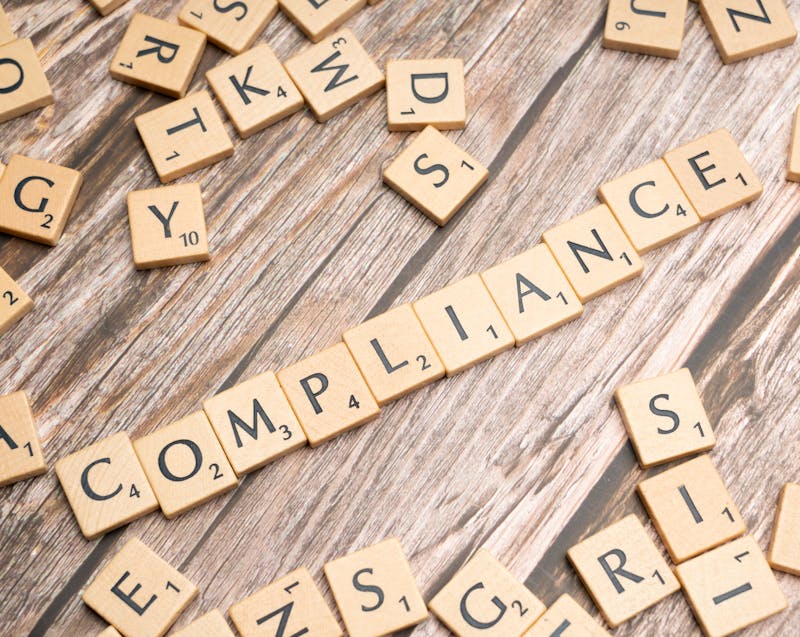

- Business compliance is an ongoing responsibility that protects entrepreneurs from fines, lawsuits, and reputational damage.
- A structured business compliance checklist covers areas like registration, taxation, employment law, intellectual property, data privacy, and industry-specific regulations.
- Legal support is essential for business formation, contract drafting, employment law guidance, intellectual property protection, and dispute resolution.
- Common compliance mistakes—like misclassifying employees or neglecting data privacy—can be avoided with proactive planning and professional guidance.
- Technology tools, such as compliance software and automated reminders, simplify tracking deadlines and managing documentation.
- Building a compliance-first culture ensures long-term sustainability and helps create trust with employees, customers, and investors.
Starting and running a business is more than just creating products, hiring employees, and finding customers. One of the most overlooked yet critical aspects of entrepreneurship is ensuring compliance with laws and regulations. Business compliance is not a one-time event—it’s an ongoing responsibility that protects your company from fines, lawsuits, and reputational harm. For entrepreneurs, understanding the key elements of compliance and identifying the legal support you’ll need can mean the difference between smooth operations and costly setbacks.
This comprehensive guide provides you with a business compliance checklist, explores the legal requirements across different business functions, and explains how legal professionals and services can support your journey. Whether you’re just starting out or scaling up, this roadmap will help you stay compliant and focus on growth with confidence.
Why Business Compliance Matters for Entrepreneurs
Running a business without prioritizing compliance is like driving without insurance—you may not face immediate consequences, but the risks are enormous. Compliance ensures your business operates within the boundaries of the law while protecting your employees, customers, and stakeholders. It demonstrates professionalism, builds trust, and reduces the risk of penalties.
For entrepreneurs, the benefits of compliance extend beyond avoiding legal trouble. It also creates credibility with investors, helps secure financing, and positions your company as a reliable partner in the marketplace. In industries with heavy regulation, like finance or healthcare, compliance isn’t optional; it’s the backbone of sustainable success.
Ignoring compliance can result in serious consequences: government fines, loss of licenses, lawsuits from employees or customers, and even the closure of your business. By establishing strong compliance practices early, you set the stage for long-term resilience.
Understanding Business Compliance: What Does It Really Mean?
Business compliance refers to the act of following all applicable laws, regulations, standards, and ethical practices relevant to your industry and jurisdiction. It is a broad concept that covers areas like taxation, labor law, environmental rules, data privacy, and corporate governance.
For entrepreneurs, the complexity often lies in the sheer variety of compliance requirements. These can differ depending on your location, industry, company size, and business model. For example, a food business must meet health and safety standards, while a tech startup may need to focus more on intellectual property protection and data security.
Compliance isn’t static, either. Laws and regulations change over time, and your company must adapt. This makes ongoing monitoring, training, and sometimes even external legal support essential for staying up-to-date.
Business Compliance Checklist: Key Areas You Must Cover

Before diving into the specifics of legal support, let’s look at a comprehensive business compliance checklist. Entrepreneurs can use this as a foundation to ensure no major requirement is overlooked.
1. Business Registration and Licensing
- Register your business entity (LLC, corporation, partnership, or sole proprietorship).
- Obtain all necessary licenses and permits based on your industry and location.
- Keep your business registration documents up to date with your local government.
2. Tax Compliance
- Apply for an Employer Identification Number (EIN) or tax identification number.
- File federal, state, and local taxes correctly and on time.
- Understand sales tax obligations and payroll tax requirements.
3. Employment and Labor Laws
- Create employment contracts that comply with labor standards.
- Ensure proper classification of employees versus independent contractors.
- Follow wage laws, overtime regulations, and workplace safety requirements.
4. Intellectual Property Protection
- Trademark your brand name and logo.
- Copyright original content, designs, or software.
- Secure patents if you’ve developed unique inventions.
5. Data Privacy and Security
- Comply with laws like GDPR (EU) or CCPA (California) if you handle customer data.
- Create clear privacy policies and data handling procedures.
- Invest in cybersecurity to protect sensitive information.
6. Financial Reporting and Recordkeeping
- Maintain accurate financial statements and bookkeeping records.
- Follow the accounting standards applicable in your country.
- Prepare for audits, both internal and external.
7. Industry-Specific Regulations
- Food and beverage businesses: Health inspections and sanitation compliance.
- Healthcare companies: HIPAA compliance for patient data.
- Finance startups: SEC or FINRA rules for investment and trading.
This checklist isn’t exhaustive, but it provides a clear structure for entrepreneurs. Each item requires awareness, documentation, and often, professional assistance.
What Legal Support Will You Need as an Entrepreneur?
Even with a checklist, navigating compliance can be overwhelming. That’s where legal support comes in. Legal professionals not only help interpret complex regulations but also act as strategic partners in minimizing risks. Let’s explore the types of legal support entrepreneurs may need.
Business Formation and Structuring
When starting a company, choosing the right structure (LLC, corporation, partnership) affects your taxes, liability, and compliance obligations. Lawyers guide you in registering your business and drafting bylaws or operating agreements.
Contract Drafting and Review
From vendor agreements to employment contracts, every document you sign has legal implications. Attorneys ensure your contracts are enforceable, fair, and compliant with local laws.
Employment Law Guidance
Employment regulations are among the most complex areas of compliance. Legal experts help you create policies, employee handbooks, and hiring practices that reduce risks of discrimination claims or wage disputes.
Intellectual Property (IP) Protection
Protecting your brand and creations is vital for long-term growth. Legal support ensures trademarks, copyrights, and patents are properly filed and defended.
Regulatory Compliance Consulting
In regulated industries, ongoing legal advice is essential. Lawyers specializing in healthcare, finance, or environmental law help you adapt to evolving rules.
Dispute Resolution and Litigation
When conflicts arise—whether with employees, customers, or competitors—legal support ensures your business is represented fairly, protecting your assets and reputation.
How to Stay Updated on Compliance Requirements
For entrepreneurs, compliance is never static. Laws evolve, and regulations often change in response to market trends, technology, or global events. Staying informed is critical. Here are strategies:
- Subscribe to industry newsletters and legal updates: These provide timely alerts about regulatory changes.
- Invest in compliance management software: Tools like ComplySci or LogicGate track obligations and send reminders.
- Attend training and workshops: Many organizations host seminars on compliance best practices.
- Maintain ongoing relationships with legal professionals: Regular check-ins with attorneys ensure you remain proactive instead of reactive.
By embedding compliance into your daily operations, you reduce the chances of being caught off guard by sudden changes.
Common Compliance Mistakes Entrepreneurs Make
Despite best efforts, many entrepreneurs fall into compliance pitfalls. Knowing what to avoid can save you time and money.
- Failing to register properly: Operating without licenses or incorrect registrations can result in penalties.
- Poor employee classification: Misclassifying workers as contractors to avoid benefits can lead to lawsuits.
- Ignoring data privacy rules: Mishandling customer data not only breaks laws but also damages trust.
- Neglecting regular filings: Annual reports, tax returns, and permits must be filed consistently.
- Overlooking industry-specific regulations: General compliance may not cover all requirements for niche businesses.
Learning from these mistakes and proactively addressing them strengthens your compliance culture.
Business Compliance Checklist and Legal Support: A Practical Workflow
To make compliance actionable, entrepreneurs can follow a structured workflow that combines the checklist with legal support:
Initial Assessment
- Identify applicable regulations in your industry and location.
- Consult with a business attorney to confirm legal requirements.
Documentation Setup
- Register your business and obtain licenses.
- Draft policies and contracts with legal guidance.
Ongoing Monitoring
- Implement compliance software and internal audits.
- Keep communication lines open with your lawyer for regular updates.
Training and Awareness
- Educate employees on compliance responsibilities.
- Update handbooks and training sessions annually.
Crisis Management
- Have a legal team ready for disputes, audits, or investigations.
- Develop a contingency plan for handling violations.
This step-by-step approach keeps compliance manageable and ensures you always have professional backing.
When Should You Seek Legal Support?

Not every compliance issue requires immediate legal involvement, but knowing when to bring in an attorney is crucial. Entrepreneurs should consider legal support in these scenarios:
- Launching a new business or entering a new market.
- Drafting major contracts or partnerships.
- Hiring employees or restructuring teams.
- Protecting intellectual property.
- Facing disputes, lawsuits, or regulatory investigations.
- Expanding internationally, where new laws apply.
Legal assistance is an investment, not just an expense. The cost of mistakes often outweighs the fees of preventive legal guidance.
Tips for Building a Compliance-First Business Culture
Compliance shouldn’t feel like a burden; instead, it should be part of your company’s DNA. Here’s how to foster a compliance-first culture:
- Lead by example: Entrepreneurs and senior leaders must demonstrate a commitment to compliance.
- Communicate openly: Encourage employees to ask questions or report concerns.
- Simplify processes: Make compliance tasks easy with checklists and software.
- Reward good practices: Recognize employees who consistently follow compliance protocols.
- Stay transparent: Share compliance updates and decisions with your team.
When compliance becomes ingrained in your culture, it reduces risks and builds a stronger foundation for growth.
How Technology Can Simplify Business Compliance
Staying compliant doesn’t have to mean drowning in paperwork or manually tracking deadlines. Modern technology offers tools that simplify compliance tasks, minimize errors, and keep entrepreneurs focused on growth. By leveraging compliance software and digital solutions, you can centralize important documents, receive reminders for renewals, and maintain a clear audit trail. This reduces the risk of missed filings or overlooked obligations, which are common causes of penalties for small businesses.
Some ways technology can support your compliance efforts include:
- Automated reminders for tax filings, license renewals, and reporting deadlines.
- Cloud-based storage systems to organize contracts, employee records, and permits securely.
- Data privacy software that ensures compliance with regulations like GDPR or CCPA.
- Compliance dashboards that provide real-time status updates on pending requirements.
- E-signature tools for legally valid agreements without the hassle of physical paperwork.
Final Thoughts
For entrepreneurs, business compliance may seem daunting at first, but with the right checklist and reliable legal support, it becomes manageable. Compliance is not just about avoiding penalties—it’s about creating a trustworthy, sustainable business. By proactively addressing regulatory requirements, working closely with legal professionals, and embedding compliance into your culture, you can focus on innovation and growth with peace of mind.
Remember: A strong compliance strategy is an investment in the future of your business.

